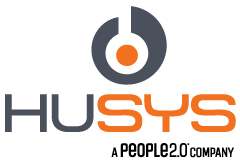While the biggest Fintech disruptor #Bitcoin is mushrooming at exponential phase, the underlining technology…The Blockchain is much more disruptive in transforming the way traditional support functions across industry and governments are handled. Here we narrow this to the way Block-chain going to change the way #HR department functions.
The HR Technology Market
From traditional standalone desktop applications to web-server to cloud to Mobile only versions within a span of 10 years, HR Technology is transforming at a rapid phase and the next 2-3 years will be a continuous race with mixing Machine Learning and Artificial Intelligence to make HR technology much more reliable and address the needs of users at un matched quality.. To quickly brief, block-chain provides a decentralized and secure ledger which gives participating parties a way of validating the information related to a transaction. In doing so, it speeds up the process and cuts out any middlemen. Importance of exchange of information which is the basis of Employer-Employer relationship and block-chain technologies making this much simpler and efficient.
Examples of HR blockchain Technologies
Here is a selection of inspiring examples, picked to demonstrate a range of use cases, without trying to offer an exhaustive list.
HR blockchain in payroll
Unlike sending out payroll electronically in a domestic setting, sending overseas is consistently expensive for businesses and can take a long time to process due to multiple intermediary banks and third parties. The long-term inefficiencies of overseas payroll payments can add up. Currency volatility can have an immediate effect on both the employer and employee. Hourly changes in exchange rates are routinely taken advantage of by intermediaries. So, time is money and an international payroll blockchain solution simply offers a faster solution than existing models. Companies like: Bitwage has an interesting solution to look at and to discover what this could look like in practice. By combining the blockchain with mobile and cloud technology, Bitwage is now focused solely on facilitating cross-border payments by using bitcoin as a payments rail; employees ultimately get paid out in their local currency, and Bitwage handles the conversion of bitcoin to local funds. If this is legal in India ? as of now no. But not sure on the future reality.
HR blockchain in certification
My research did not get any concrete companies doing these but I am sure there are many start-ups who are trying to solve certification issues using blockchain technology by tying up with multiple HR vendors to get the transparent data about the employee .
Digital Process Management
As I look even better cases , why not the whole set of Employee related documents or smart contracts like Digi wallet of Govt.. where a reference of the same using blockchain technology will save huge data/scanning/re verifying time and money. Secondly when a person with a particular contract/skill set is stored in the wallet, there may be possibility of the employee being paid using the same set retrieved by blockchain instead of using any intermediaries. May be best tool for Artists who can agree royalties without worrying on intermediaries. And other thought of small business /Freelancers getting paid for the services offered in open talent at a rate that is transparent and get access to better talent at unified rates.
So what is ahead ..
I predict that in next 1-2 yrs a mushroom of HR tech companies with a dozen or so surviving with sizable business and consolidate the market as it grows … lets see what is the future !!! get more updates on this. Follow Husys page on LinkedIn or write to reach@husys.com #getHRenabled

















